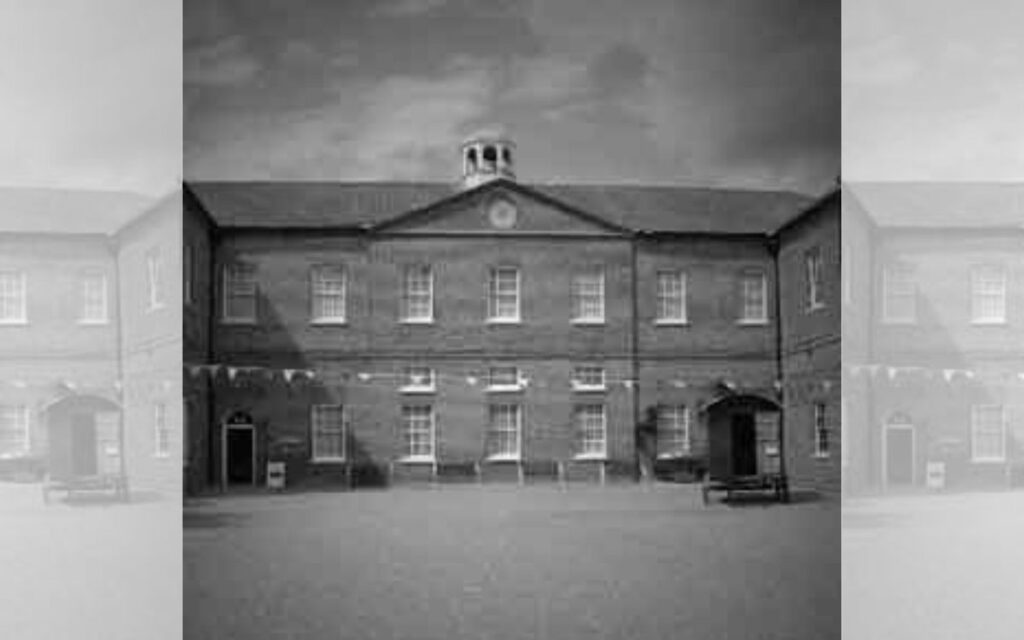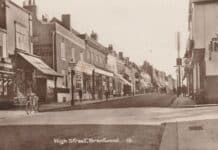ISABELLE KING tells the sad tale of 12-year-old Harriet Kettle, the Ghost of Gressenhall of Norfolk

The source of these noises seems to come from the notoriously spooky punishment cell.
No one knows for sure who or what is responsible for these chilling sounds.
Many believe the most likely explanation is the ghost of 12-year-old Harriet Kettle, haunting the workhouse at night.
Why do they think it’s her?
Because those who know about Gressenhall tend to know about her; she was infamous for spending time in the cell.
And records of her troublesome character also give an insight to what conditions were like in the workhouse at that time.
Life for an inmate at Gressenhall workhouse was, in a word, rough.
Men, women and children were separated.
At Gressenhall Workhouse, Norfolk, there are said to be strange wailing, moaning noises echoing through the corridors at night.
The days consisted of long, arduous tasks such as picking oakum and breaking stones.
Principally, the imposing looking building was designed to keep people out.
You could only enter a workhouse if you were destitute.
This meant, not only having nothing in the world but also having no means of earning.
Harriet grew up in the workhouse because she didn’t have a thing to call her own in the world.
It adds a real touch of sorrow to the legend of her haunting.
There are countless records of Harriet getting into trouble as young as 12, destroying food and property, purposefully disobeying the Master or guardians, setting her bed on fire and using violent language, often resulting in some hard time spent in the punishment cell.
Having visited Gressenhall Workhouse, I have seen the cell and can tell you it’s not for the faint hearted; a tiny, dark, damp room with no windows where Harriet would have been locked in solitude for however long a guardian deemed fit.
One can only imagine the terror a 12-year-old girl must have felt, trapped inside a pitch black, cold room with no food, no light, no comfort and which most likely already had rumours of ghosts.
Harriet’s story is undoubtedly a sad one.
She was shuffled from local lunatic asylums and prisons throughout her life and so one would assume that her experiences at Gressenhall had scarred her, perhaps why her ghost still lingers in the eerie confinements of the cell.
Gressenhall Workhouse is now a museum where you can find out more about Harriet’s life. Though I don’t you recommend you visit at night!
UPDATE: Since writing this article I’ve been lucky enough to be in contact with the curator at Gressenhall Farm and Workhouse who sent me lots of really interesting information about Harriet including something I was very happy to hear. Whilst the many records of her violent behaviour causing havoc at Gressenhall, including attempting to set fire to her bed and being frequently sent to local lunatic asylums, indicates an unhappy life, it turns out the story of this troublesome character does in-fact have a happy ending.
Having been discharged as sane from St. George’s in the Fields, London, where she had been admitted for criminal lunacy, Harriet married an agricultural labourer residing in Dereham, Norfolk and, according to the curator, went on to lead a long and happy life. Now if, like me, you enjoy indulging in a spooky story, you may perhaps decide this doesn’t quite tie in with her coming back to haunt the punishment cell. So how do we explain the eerie noises at night? Is Harriet still a potential culprit in spite of her happier life away from the workhouse? Well, as with so many ghost stories, we may never know. But it still makes a great ghostly tale!
I actually worked at Gressenhall some years ago as a volunteer playing Harriet for a Halloween ghost tour spending most of my time in the punishment cell. I seem to remember it was very cold and scary!
The cell is one of Gressenhall’s top 10 experiences so do visit if you get the chance. Though, as I’ve said, perhaps not at night, especially with Halloween approaching!
ISABELLE KING is an actress and freelance writer living in London.







